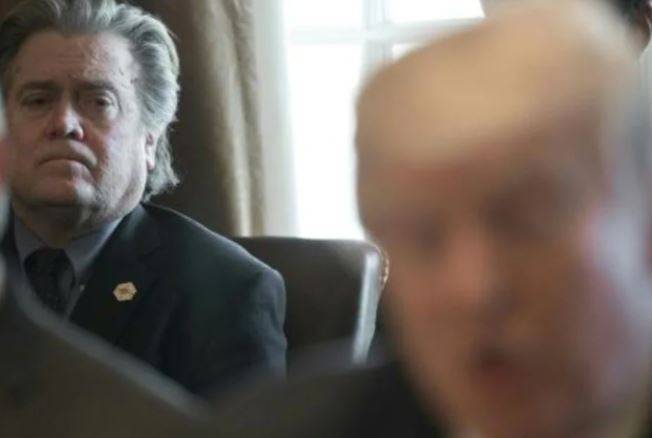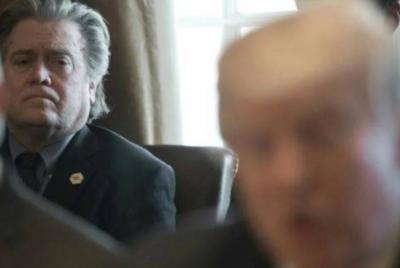U.S. lawmakers approved on Thursday the initiation of legal proceedings against Steve Bannon, a close associate of former President Donald Trump, on charges of obstructing Congress. Bannon has refused to participate in investigations regarding the Capitol attack. The 67-year-old former adviser was a key architect of Trump's 2016 presidential campaign. Lawmakers believe that his testimony is critical as it is supposed to help understand what Trump was doing before and during the attack on Congress. It could also reveal Bannon's role in organizing the insurrection and any efforts he may have made to coordinate with Trump and his aides.
The lawmakers voted in favor of referring Bannon to federal prosecutors to decide whether to officially charge him. Democratic committee chair Benny Thompson stated, “Bannon stands alone in his defiance, and we will not defend him.” He added, “We will not allow anyone to disrupt our work because it is very important,” as it aims to “make the future of American democracy strong and secure.”
Bannon has not held any official position since January 6, but he appears to have discussed the demonstration with Trump in the days leading up to it, according to the special House committee investigating the former Republican president's role in the attack. Despite being subpoenaed, Bannon did not appear before lawmakers last week. With his referral to federal prosecutors to consider charges, the legal battle could take months or years, potentially undermining the investigation.
Several members of Congress referenced comments made by Bannon on his podcast in the days before the insurrection and on the morning it occurred. Bannon stated in these comments, “All hell is going to break loose tomorrow (...) this is not a fairy tale day, but a day focused on obsession. Focus, focus, focus.” He added, “We’re directly approaching the target... this is the point of attack we’ve always wanted.”
All 220 Democratic lawmakers in the House voted Thursday in favor of the resolution to refer Bannon's case to prosecutors. Democratic House Speaker Nancy Pelosi said, “According to published information, Steve Bannon had precise knowledge of the events of January 6 before they occurred and played a role linked to the attack in various ways and was very explicit about it.”
Bannon stated that Donald Trump's lawyers advised him not to testify before the committee, citing the president's right to keep certain documents and discussions confidential. However, the House investigation committee believes this protection does not apply to Trump since he is no longer president, nor to Bannon.
House Minority Leader Kevin McCarthy, who initially called for an investigation but sought in subsequent months to thwart such efforts, asked his party's lawmakers to vote against the resolution. Ultimately, nine Republicans, including Liz Cheney, vice chair of the investigation committee and one of the dissenting voices in her party against Trump, supported the resolution. Cheney, a representative from Wyoming and daughter of former Vice President Dick Cheney, stated that she believes the 45th president of the United States was “personally involved” in planning and executing the Capitol riot, which resulted in at least five deaths.
Cheney told the House, “Bannon’s public statements make it clear that he knew in advance what was going to happen.” She added, “He must have been aware and perhaps participated in the planning of everything that happened that day.” Cheney emphasized that “the American people deserve to know what he (Bannon) knew and what he did.”
Another Republican lawmaker, Adam Kinzinger, who also voted in favor of the resolution, stated that he does not question Bannon’s contempt for being subpoenaed to testify. Kinzinger, a member of the investigation committee, said, “No one – I repeat, no one – is above the law (...) and we need to hear his testimony.”




